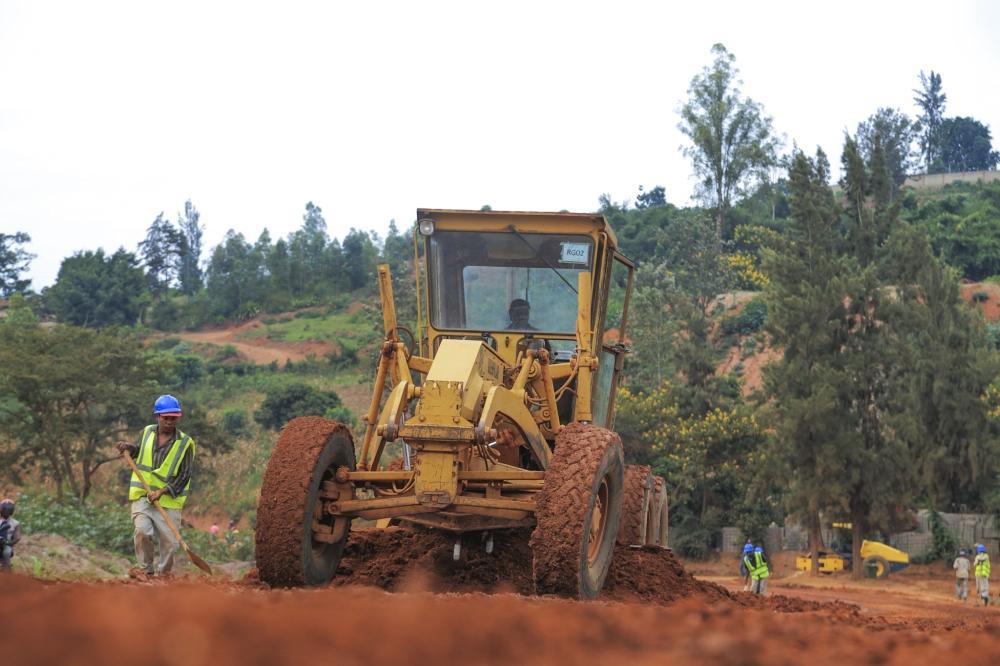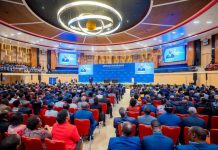Africa-Press – Rwanda. Up to 105 companies were suspended by Rwanda Public Procurement Authority (RPPA), from 2018 to December 2024, due to malpractice in executing public contracts.
In an interview with The New Times, John Mpunga, the Litigation and Investigation Specialist at RPPA, explained that most of the companies that have been blacklisted were penalized mostly for poor performance, non-execution of contracts, or providing false information during the tendering process.
Commenting on the reasons and procedures, he explained that the legal basis for blacklisting is established under public procurement laws including the 2007 law on public procurement, which was amended in 2013 and repealed in 2018.
The current governing framework is a November 2022 law.
“The 105 companies were sanctioned based on the 2018 law governing public procurement and the 2022 law governing public procurement,” he explained.
The data available on the E-Umucyo system, the duration of blacklisting the 105 companies ranges from one year to a maximum of seven years.
Mpunga pointed out that, under Article 176 of the 2018 law, a company may be debarred for seven years for offenses such as providing false information about its capacity or documents, violating procurement laws to obtain a contract, or using a fake contract to apply for a bank loan.
Other reasons for the seven-year disqualification include failing to pay employees or suppliers, changing a registered address without notifying the contracting authority, or a consultant being responsible for significant errors in a study during its implementation. Under the same law a company can be blacklisted for five years for collusion to disrupt fair competition, submitting fraudulently inflated prices, or disclosing confidential tender information during or after contract execution.
Mpunga also noted that the same law outlines cases where a company can be permanently banned from participating in public procurement.
He pointed to, for example, a bidder “who is debarred for the second time or who enters into a contract while he or she is debarred; and any company debarred and which uses fraudulent means to evade sanctions imposed on it to continue participating in public procurement in the debarment period.
Under the law enacted in 2022, a successful bidder who performs poorly, fails to meet quality standards, or does not execute the contract for reasons unrelated to the procuring entity may be debarred for one year. They may also face an administrative fine of five percent of the contract’s value, and the contract will be terminated.
The new law outlines additional measures depending on the specific case.
Importantly, it also specifies five reasons that can result in a permanent ban from participating in public procurement.
Speaking on the implications of blacklisting, Mpunga stated: “The first implication is that a blacklisted company cannot participate in public procurement until it has served its sanction.
“However, a company that had signed a contract before being blacklisted continues to execute until the end of the contract, but there cannot be a renewal of the contract for the blacklisted company.”
On whether these companies are taken to court for breach of contract, he clarified that blacklisting is an administrative process, independent of court proceedings.
“This is because it is only an administrative procedure, contrary to court proceedings. However, parties to the contract are free to take their contractual issue to the court if the need so necessitates.”
For companies blacklisted for providing false information, including forgery, Mpunga said such cases are forwarded to the prosecution for potential criminal investigation.
“Since the introduction of the blacklisting system, its overall impact has been the improvement of execution of the procurement contract and fraudulent practices has been significantly reduced due to the fear of facing the sanctions.”
Regarding reforms, he stated that procurement law is dynamic and evolves as needed.
Ever since the first law, in 2007, reforms followed in 2013, 2018, and most recently in 2022.
“The reforms concerning the blacklisting mainly relate to development of the e-procurement system where identifying and detecting these violations of procurement law will be simplified. With the second version of Umucyo e-procurement, the tracking of violations to ensure accountability and compliance will be simplified.”
For More News And Analysis About Rwanda Follow Africa-Press






